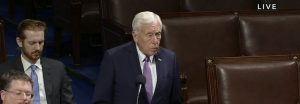Congress general secretary Randeep Surjewala took aim at the Centre, on Saturday, over the ongoing coronavirus pandemic, making five points, including one about the virus’s Omicron variant.
As he tweeted his points, Surjewala tagged a Hindi news article that stated that the rate of vaccination in India had dropped by 8.5% since the cases of the Omicron variant surfaced. “The rate of vaccination is slowing down and not everyone will be able to get the vaccine by December,” Surjewala posted.
Also Read | India reports 7,992 new COVID cases, 393 deaths in last 24 hours
The Congress leader also accused the federal government of failing to develop a booster dose policy and a vaccination policy for children under the age of 18. “There has been no genome sequencing for the Omicron variant,” the Congress general secretary said in a tweet, adding, “my nation demands answers.”
This comes a day after Union health minister Mansukh Mandaviya told the Lok Sabha on Friday that the first dose has been given to as many as 86% of the country’s vaccine-eligible demography, adding that the Centre hopes to achieve full vaccination as soon as possible.
Mandaviya claimed that India has done well on the immunisation front after sharing vaccination data from other countries such as the United States, France, Germany, and Russia.
Also Read | 25 Omicron cases in India so far, all have ‘mild symptoms’: Centre
According to the Union health ministry, vaccination coverage in India has reached 1.31 billion people, with more than 7.45 million doses administered to eligible beneficiaries in the last 24 hours.
The demand for a booster vaccine dose is increasing as the total number of cases of the Omicron variant has surpassed 30.
The Indian SARS-CoV-2 Genomics Sequencing Consortium (INSACOG) suggested last month that a booster drug for people over the age of 40 might be considered.
“Vaccination of all remaining unvaccinated at-risk people and consideration of a booster dose for those 40 years of age and over, first targeting the most high-risk / high-exposure may be considered since low levels of neutralising antibodies from current vaccines are unlikely to be sufficient to neutralise Omicron, although the risk of severe disease is still likely to be reduced,” the INSACOG said in its weekly bulletin on November 29.
The top genome sequencing body, however, said on December 4 that its recommendation was not for the country’s immunisation programme and was just a discussion about the potential role of an additional dose of vaccines in high-risk populations.
The INSACOG stated on December 4 that many more scientific experiments are needed to assess the effects of a booster dose.






